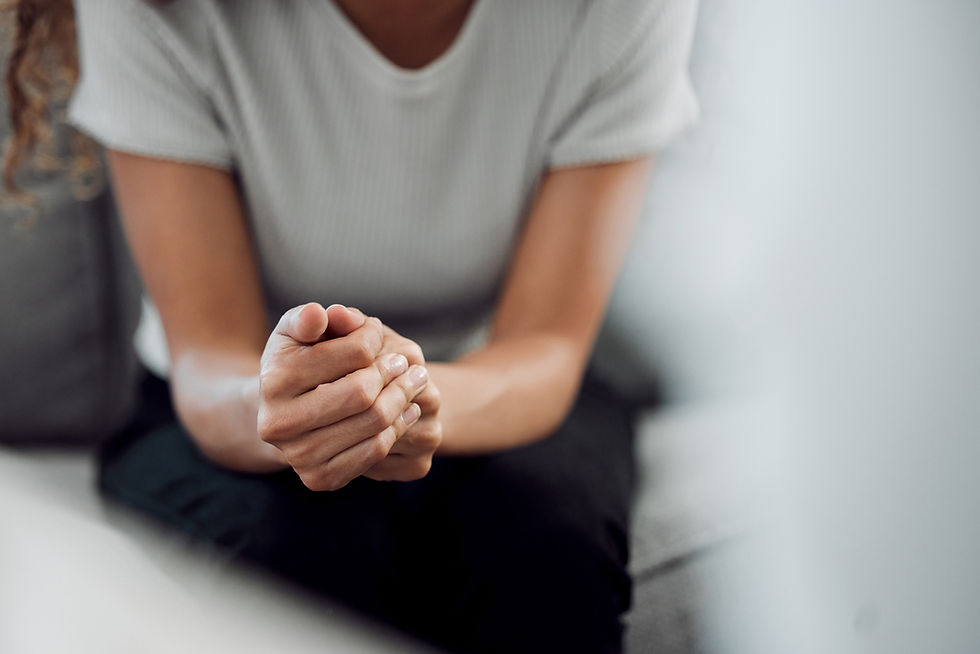How Relationship Counseling Can Transform Your Partnership
- Kimberly Mahr
- Oct 1, 2025
- 4 min read
Let’s be real: relationships are hard work. You don’t need me to tell you that. But what if I told you there’s a way to make that work feel a little less like pulling teeth and more like a dance you both actually enjoy? Enter relationship therapy. It’s not just for couples on the brink of disaster or those who want to air their dirty laundry. It’s for anyone who wants to deepen their connection, improve communication, and maybe even have a little fun along the way.
Whether you’re navigating the early days of a new romance or have been together long enough to finish each other’s sentences (and annoy each other to no end), relationship therapy can be a game-changer. Ready to find out how? Let’s dive in.
Why Relationship Therapy Isn’t Just for “Fixing” Things
First off, let’s bust a myth. Relationship therapy isn’t just for couples who are “broken.” Think of it more like a tune-up for your car. You don’t wait for the engine to explode before you get it checked, right? The same goes for your partnership.
Relationship therapy helps you:
Understand each other better: Sometimes, you’re speaking different emotional languages without even realizing it.
Communicate more effectively: Learn how to say what you mean without starting a fight.
Build stronger emotional intimacy: It’s not just about sex; it’s about feeling safe and connected.
Navigate life changes together: Whether it’s moving, career shifts, or family drama, therapy can help you stay on the same page.

The beauty of relationship therapy is that it’s proactive, not just reactive. You get tools and insights that make your day-to-day interactions smoother and more meaningful. Plus, it’s a safe space to air out frustrations without judgment.
What to Expect from Relationship Therapy Sessions
If you’re thinking, “Okay, but what actually happens in these sessions?” here’s the lowdown. A typical relationship therapy session is a guided conversation led by a trained professional. They’re like the referee who keeps things fair and productive.
Here’s what usually goes down:
Setting goals: You and your partner decide what you want to work on.
Exploring patterns: The therapist helps you identify recurring issues or communication styles.
Learning new skills: This could be conflict resolution, active listening, or empathy exercises.
Homework: Yes, you might get “assignments” to practice outside of sessions.
The therapist’s job is to create a judgment-free zone where both of you feel heard and understood. They’ll ask questions that make you think and sometimes challenge your assumptions. It’s not always comfortable, but it’s always worth it.
Remember, therapy is a two-way street. The more you both commit, the better the results. It’s not about blaming or winning; it’s about growing together.
How to Fix a Relationship That Is Falling Apart?
If your relationship feels like it’s teetering on the edge, don’t panic. There’s hope, and it often starts with recognizing the cracks before they become chasms.
Here’s a practical roadmap to start fixing things:
Acknowledge the problem: Pretending everything’s fine won’t help. Be honest with yourself and your partner.
Seek professional help: This is where relationship counseling can be a lifesaver. A therapist can guide you through the mess.
Improve communication: Stop the blame game. Use “I” statements like “I feel hurt when…” instead of “You always…”
Rebuild trust: This takes time and consistent effort. Be reliable and transparent.
Prioritize quality time: Life gets busy, but carving out moments just for each other can reignite the spark.

Fixing a relationship isn’t about grand gestures or quick fixes. It’s about small, consistent steps that show you care and want to make things better. And yes, sometimes that means getting a little vulnerable and asking for help.
The Unexpected Benefits of Relationship Therapy
You might think therapy is all about tackling problems, but it can actually bring some pretty awesome perks you didn’t see coming.
Better self-awareness: You learn a lot about yourself, your triggers, and your needs.
Improved mental health: Less stress and anxiety when your relationship feels solid.
Stronger friendships: The skills you gain can improve other relationships too.
More fun and laughter: When communication improves, so does your ability to enjoy each other’s company.
Plus, therapy can help you set healthy boundaries and recognize toxic patterns before they spiral out of control. It’s like having a relationship GPS that keeps you on the right track.
Making the Most of Your Relationship Therapy Journey
So, you’ve decided to give relationship therapy a shot. Awesome! Here’s how to get the most bang for your buck:
Be open and honest: Don’t hold back because you’re afraid of judgment.
Show up consistently: Regular sessions build momentum.
Practice outside of sessions: Use the tools and exercises your therapist gives you.
Support each other: Remember, you’re a team, even when it’s tough.
Celebrate progress: No matter how small, wins deserve recognition.
Therapy is a process, not a magic wand. However, with patience and effort, it can transform your partnership in ways you never thought possible.
Ready to take your relationship to the next level? Whether you’re struggling or want to grow closer, relationship counseling might be the secret ingredient you’ve been missing. Give it a try - your future selves will thank you.




Comments